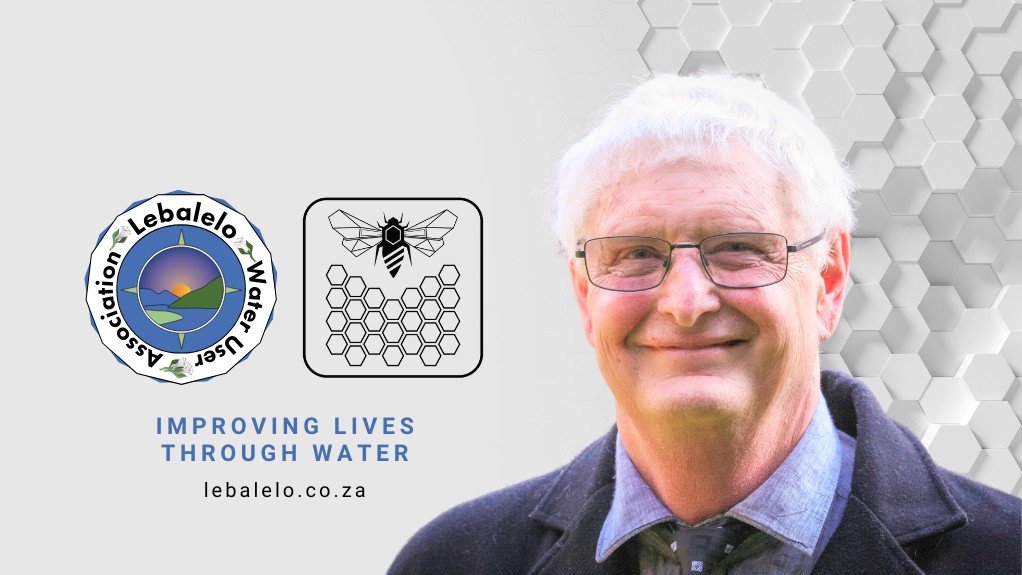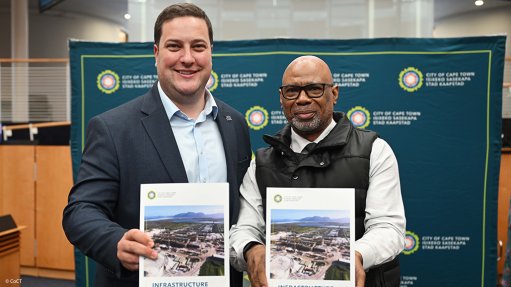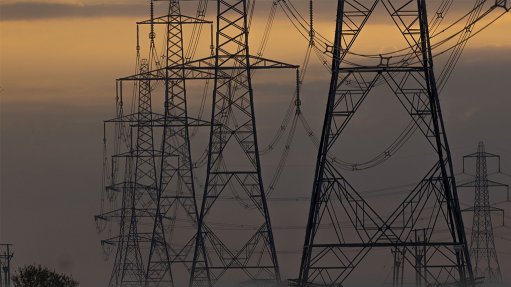Public-private collaboration needed to tackle South Africa’s infrastructure challenges
By Bertus Bierman
South Africa faces immense challenges in developing and maintaining the infrastructure it needs to support social and economic growth. From water shortages to the energy crisis, no single entity, be it in the public or the private sector, can address these issues alone. To overcome these hurdles, a collaborative approach must be embraced, one that leverages the strengths of both sectors to create long-lasting, sustainable solutions. As the late President Nelson Mandela once said: "We can change the world and make it a better place," and by working together, South Africa can indeed transform the country’s infrastructure landscape.
In the wake of South Africa’s Government of National Unity (GNU), the concept of collective governance and shared responsibility presents a powerful blueprint for addressing the country’s most pressing challenges. Similarly, the key to solving South Africa’s infrastructure problems lies in the collaboration between the public and private sectors. When both sectors align, combining resources and expertise, as well as a shared commitment to success, new possibilities for large-scale infrastructure development will be unlocked.
Introducing the Hive Concept
Lebalelo Water User Association (LWUA) has developed the "hive concept" — an alternative model for infrastructure development that draws inspiration from the natural world. Just as bees work together to build and maintain a hive, where each contributes to and benefits from the collective effort, public and private entities can join forces to construct, operate and sustain regional infrastructure. The "honey" in this case is the long-term, shared benefits that flow from well-maintained infrastructure, benefiting not only businesses but also the communities they serve.
The hive concept reflects the need for synergy between government, industry and communities. It is about ensuring that all parties contribute their expertise and resources, encouraging collaboration for a common purpose. The success of this model lies in mutual benefit: when building infrastructure that serves everyone, from industrial users to rural communities, a foundation for long-term economic and social stability is created.
Not Just a Theoretical Concept
A practical example of how the principles of collective governance can be applied to infrastructure development is the Olifants Management Model Programme (OMMP), a R25-billion (capital expenditure) public–private collaboration being implemented by LWUA. Much like the formation of the GNU, which has brought together different political parties to address the nation’s challenges, LWUA unites government, represented by the Department of Water and Sanitation (DWS), and commercial water users, which include mining companies and industrial users, to develop essential water infrastructure in Limpopo.
LWUA itself serves as a non-profit aggregator (representing the hive) where its members (the bees) collectively bring in resources and expertise to develop and sustain the infrastructure system for shared benefit (the honey).
The OMMP builds on government’s original Olifants River Water Resources Development Project and expands it to include potable water infrastructure provisioning. Rolled out in phases, the programme aims to fast-track the construction of bulk raw and potable water infrastructure for communities and commercial users (including mines, industrial users) in Sekhukhune district municipality and Mogalakwena local municipality, optimise existing infrastructure and water supply of the De Hoop and Flag Boshielo dams in the Middle Olifants catchment and enhance water supply to Polokwane local municipality. By integrating potable water infrastructure alongside bulk raw water supply, it aims to serve both communities and businesses, ensuring reliable water supply to both.
This is collaboration in action; it is a coordinated effort rooted in shared control, equitable resource distribution and long-term sustainability, where each stakeholder has a voice and a role in ensuring the programme’s success.
Key Principles of Public–private Collaboration
So how can this model be replicated in other sectors? Based on LWUA’s experience with the OMMP, there are six key principles for successful public–private collaboration.
Identify a common need. Collaboration should start with a shared recognition of the problem. In the case of the OMMP, the need for bulk raw and potable water infrastructure in Limpopo was evident. By addressing overlapping needs, LWUA creates a shared purpose that aligns government and industry objectives – maintaining a social license to operate and securing a consistent supply of water for the private sector, while supporting government in executing its service delivery mandate and maintaining control of the underlying assets.
Build trust early. Just as bees work together harmoniously, stakeholders must align their interests from the start. Trust is the foundation of any successful collaboration, and it must be cultivated through transparent communication and shared decision-making. A key focus of the OMMP has been the alignment of intra-government departments and commercial water users through consistent stakeholder management, and the correct political positioning for alignment on the benefits of economic expansion, social water and socioeconomic development.
Focus on socioeconomic impact. Large-scale infrastructure projects must consider not just their immediate goals but also their wider socioeconomic impact. With the OMMP, this meant developing a strategy for socioeconomic development that goes beyond water infrastructure. LWUA’s approach focuses on five themes, covering potable water, water reuse, enterprise development, education and Internet connectivity, and ensures that the programme supports long-term community growth by providing a stable platform to support communities and a conducive environment for accelerated economic growth.
Create a collaborative structure. The hive requires careful construction, and so does the governance structure of any collaboration. The OMMP is housed within LWUA and is being implemented through LWUA’s management structure. LWUA is an ‘aggregator-type’ non-profit organisation that is independent, is managed by its members (from the public and private sectors) and is compliant with agreed policies and procedures. This ensures that decisions are made equitably, based on consensus, rather than driven by profit motives.
Share responsibility and risk. For collaboration to succeed, all parties must contribute equally to the programme’s funding and decision-making. In the OMMP, government and the private sector share the financial responsibility, with innovative funding mechanisms to reduce impact on the fiscus. This shared responsibility ensures that all stakeholders remain committed to the project’s success.
Be patient and adaptable. Working with a diverse range of organisations, companies, government departments, and communities requires patience, as each operates in its own unique way. Agility is equally important, as the landscape is constantly shifting, and the ability to adapt while staying aligned with the overall objectives of the programme is crucial.
Blueprint for other Sectors
The public-private collaboration model offers a scalable and adaptable approach to tackling the infrastructure challenges facing South Africa. It holds promise for similar large-scale projects in other sectors, such as energy, transport and telecommunications, where extensive regional linear and utility infrastructure is required.
By pooling public and private resources, sharing control and aligning goals, we can fast-track development while ensuring that the benefits are distributed equitably in support of a prosperous and sustainable future for all South Africans.
To learn more, visit www.lebalelo.co.za/omp or connect with us on LinkedIn.
* Bertus Bierman is the CEO of LWUA. Established in 2002 by the mining sector in the Eastern Limb of the Bushveld Igneous Complex, LWUA has self-financed, constructed and successfully maintained its bulk raw water infrastructure. Over two decades of uninterrupted water supply, zero fatalities and less than 1% water losses annually demonstrate LWUA's expertise in infrastructure management.
Article Enquiry
Email Article
Save Article
Feedback
To advertise email advertising@creamermedia.co.za or click here
Announcements
What's On
Subscribe to improve your user experience...
Option 1 (equivalent of R125 a month):
Receive a weekly copy of Creamer Media's Engineering News & Mining Weekly magazine
(print copy for those in South Africa and e-magazine for those outside of South Africa)
Receive daily email newsletters
Access to full search results
Access archive of magazine back copies
Access to Projects in Progress
Access to ONE Research Report of your choice in PDF format
Option 2 (equivalent of R375 a month):
All benefits from Option 1
PLUS
Access to Creamer Media's Research Channel Africa for ALL Research Reports, in PDF format, on various industrial and mining sectors
including Electricity; Water; Energy Transition; Hydrogen; Roads, Rail and Ports; Coal; Gold; Platinum; Battery Metals; etc.
Already a subscriber?
Forgotten your password?
Receive weekly copy of Creamer Media's Engineering News & Mining Weekly magazine (print copy for those in South Africa and e-magazine for those outside of South Africa)
➕
Recieve daily email newsletters
➕
Access to full search results
➕
Access archive of magazine back copies
➕
Access to Projects in Progress
➕
Access to ONE Research Report of your choice in PDF format
RESEARCH CHANNEL AFRICA
R4500 (equivalent of R375 a month)
SUBSCRIBEAll benefits from Option 1
➕
Access to Creamer Media's Research Channel Africa for ALL Research Reports on various industrial and mining sectors, in PDF format, including on:
Electricity
➕
Water
➕
Energy Transition
➕
Hydrogen
➕
Roads, Rail and Ports
➕
Coal
➕
Gold
➕
Platinum
➕
Battery Metals
➕
etc.
Receive all benefits from Option 1 or Option 2 delivered to numerous people at your company
➕
Multiple User names and Passwords for simultaneous log-ins
➕
Intranet integration access to all in your organisation




















